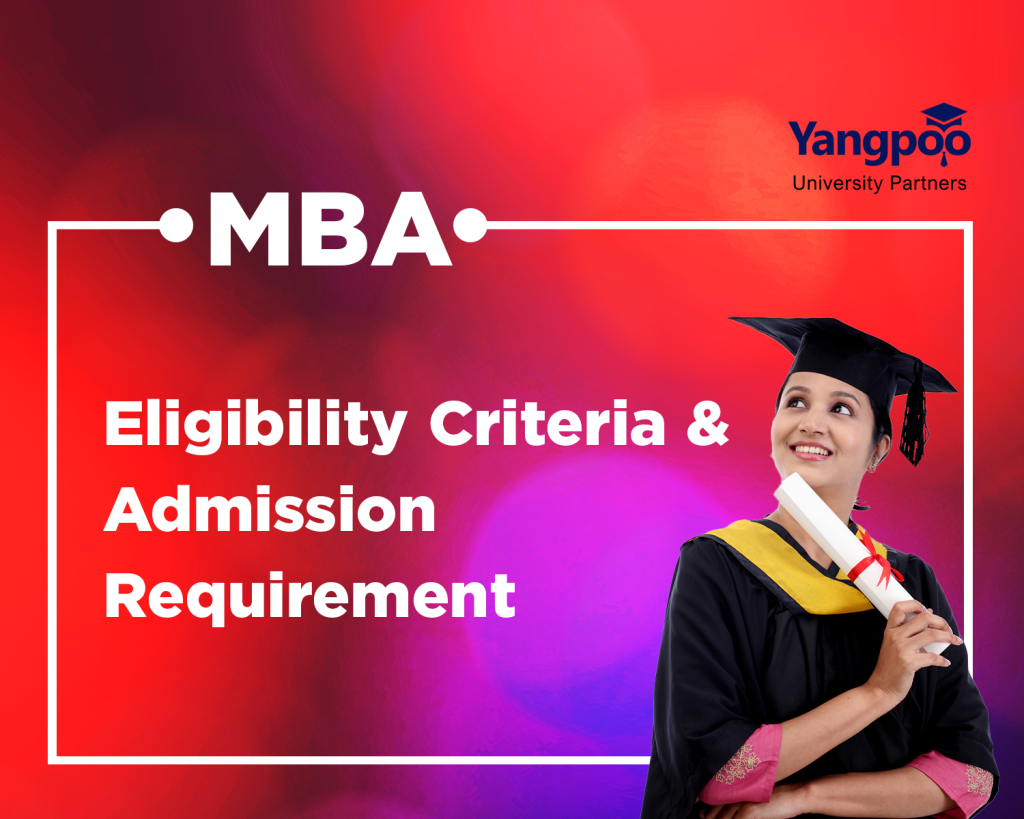Are you aspiring to pursue an MBA but feeling uncertain about the eligibility criteria and admission process? Well, you’re in good company! This blog serves as a comprehensive resource to help you decode the MBA journey. Whether it’s grasping the prerequisites or maneuvering through the intricate MBA admission eligibility we’ve got all the information you need.
What is an MBA Degree?
Curious about what differentiates leaders? An MBA can be your key to uncovering the mysteries of the business world. It’s more than a qualification; it’s a transformative experience that equips you with the skills to thrive in today’s ever changing business environment. Whether it’s grasping financial markets or honing negotiation tactics, planning for post graduation in MBA empowers you to make choices and contribute to organisational success.
General Eligibility Criteria for MBA Programs-
Let’s break down the common eligibility criteria for MBA programs.
Generally an MBA program necessitates a degree from an accredited institution with a minimum GPA. While work experience is often preferred it’s not always a requirement. Some programs may have prerequisites, such as GMAT or GRE scores.
Ready to embark on your journey? Let’s talk about your goals and explore MBA programs that align with your aspirations. Connect with Yangpoo now!
Educational Qualifications –
Before diving into your MBA adventure it’s important to have a strong base. The initial requirement is a degree from an accredited university. But what exactly does that entail? We’re referring to qualifications in areas such as business, economics, engineering or even the arts! Your distinct history adds a viewpoint to the MBA setting. So whether you excel in finance, marketing or technology there’s a spot for you in our MBA program.
Work Experience –
While an MBA can make a difference, having some experience under your belt can give you a significant advantage. Many MBA programs do not look for an MBA degree and a minimum percentage but also require a certain number of years of work experience before you step into the classroom. But what’s the reason behind this? Having experience brings a wealth of insights and a practical viewpoint to the MBA journey. It allows you to relate theoretical concepts to real life challenges, making you a more well rounded and valuable graduate.
Age Requirements –
Although there’s no hard and fast rule regarding the age to pursue an MBA, many candidates tend to be in their late 20s to early 30s. However the pursuit of knowledge knows no bounds! Whether you’re a recent graduate ready to embark on your journey or a seasoned expert aiming to enhance your skills there’s an MBA program that suits your needs. Some institutions even provide executive MBA tracks designed specifically for professionals with experience.
Specific Admission Requirements –
To get into your desired MBA program you need to meet specific admission requirements beyond having grades. While each school has its own criteria for MBA admissions there are common factors that are taken into account such as a solid academic performance, relevant work history GMAT or GRE scores and well written essays. Additionally some programs may also look at aspects like involvement in activities leadership roles and recommendation letters.
Entrance Exams –
Embarking on the path to your ideal MBA program begins by tackling those intimidating entrance exams. Be it the GMAT, GRE or other pertinent tests getting ready is essential. These assessments evaluate your skills in areas like analysis, communication and maths which are vital for excelling in an MBA. However there’s no need to worry! With a game plan and commitment you can excel in these tests.
Language Proficiency Tests –
In today’s world, having strong language skills is crucial for success in business. If English isn’t your native tongue you might need to prove your proficiency through standardised tests such as TOEFL or IELTS. These assessments measure your reading, writing, speaking and listening skills. While these exams can be tough they’re an important milestone, in opening up global opportunities. Keep in mind that language is a tool that can elevate your career to new levels.
Academic Transcripts –
Your transcripts serve as a key to entering the realm of MBA studies. They highlight your abilities and set the stage for your future achievements in the business world. But what steps can you take to ensure that your transcripts leave a lasting impact? Every single grade matters whether it’s from your undergraduate or postgraduate education. So make sure to collect all the necessary documents, adhere to the submission instructions and let your academic accomplishments take centre stage.
Letters of Recommendation –
Letters of Recommendation are like having your own squad cheering you on and vouching for your potential. They offer insights into your personality, abilities and accomplishments, whether in academics or the workplace. To maximize the impact of these letters choose recommenders who truly know you and can confidently speak about your capabilities. These could be professors, employers or mentors who can highlight your strengths and promise. Keep in mind that a well written letter of recommendation can greatly enhance your MBA application.
Statement of Purpose (SOP) or Personal Essay –
The Statement of Purpose (SOP) is your chance to showcase your journey and express your ambitions. It’s not just a list of achievements but a story that reveals your character, motivations and aspirations. Consider it as a conversation with the admissions committee where you share your passions, challenges and how an MBA will be the next step in your journey. Remember being genuine is crucial. Allow your personality to shine through as you create a captivating narrative that sets you apart from the rest.
Resume or CV –
When it comes to specialized MBA programs such as Executive MBA, Part Time MBA, Online MBA or International MBA there may be additional requirements to consider. These programs often seek candidates with diverse backgrounds and experiences that align with their specific focus. For an Executive MBA application you may need to showcase your leadership experience and managerial skills in your resume. Part Time MBA applicants should highlight their ability to balance work and studies while demonstrating relevant professional achievements. Online MBA candidates might be asked to emphasize their self motivation and time management abilities. If you’re applying for an International MBA program showcasing cross-cultural experiences and global perspectives can strengthen your application. Tailoring your resume to meet these specific requirements can enhance your chances of standing out in the selection process.
Additional Requirements for Specialized MBA Programs
Executive MBA
- Work Experience: Typically requires a minimum of 5-7 years of professional experience, often in managerial positions.
- Leadership Potential: Demonstrated leadership qualities and the ability to influence others.
- Career Goals: A clear understanding of career aspirations and how an Executive MBA will align with them.
Part-Time or Online MBA
- Time Management: The ability to balance work, studies, and personal commitments effectively.
- Self-Discipline: Strong self-motivation and the ability to stay focused on coursework.
- Technological Proficiency: Familiarity with online learning platforms and tools.
International MBA
- Language Proficiency: Fluency in the language of instruction or a willingness to learn.
- Cultural Adaptability: The ability to thrive in diverse cultural environments.
- Global Perspective: A strong interest in international business and global affairs.
Starting an MBA journey involves thinking about your aspirations and how it fits into your life. Executive MBA courses usually focus on individuals with a history of leadership positions. On the other hand part time or online MBA options are designed for working individuals providing flexibility while also demanding effective time management abilities. If you want to view MBA programs you might need to take language proficiency tests such as TOEFL or IELTS.
Admission Process Overview
The process starts by researching programs that match your career aspirations. Then you need to ace entrance exams such as the CAT, GMAT or GRE and create an application that highlights your individuality. This entails composing essays obtaining strong letters of recommendation and getting ready for the challenging group discussion and personal interview stages. Keep in mind that each business school has its own MBA eligibility requirements so it’s essential to customize your application for each institution. With commitment and careful preparation you can enhance your odds of securing a coveted spot in your desired MBA program.
Application Deadlines
- The process of applying for an MBA can resemble a game with a ticking clock. In India the MBA admission season usually begins in July August with entrance tests such as the CAT and MAT.
- While most universities wrap up their admissions by May June for the upcoming academic year commencing in July August it’s crucial to stay proactive.
- For example CAT 2024 registrations end on September 13th and the exam takes place on November 24th. MAT 2024 has multiple phases with the August session IBT Phase 1 closing on August 9th.
- Keep in mind that the early bird catches the worm! Start exploring programs gearing up for exams and putting together your applications well ahead of time. Don’t allow deadlines to catch you off guard!
Interview Process
The interview stage is an opportunity for you to showcase your suitability for the position. Usually it begins with a review of your resume or application then moves on to a phone or video interview. If you pass this round you may proceed to an in person or virtual interview. Be ready to tackle a range of behavioral technical and scenario based questions. Its not solely focused on your abilities but also on your thought process, problem solving skills and communication of your ideas. Keep in mind that practice leads to improvement!
Final Selection and Offer of Admission
Now we arrive at the part, the selection process. Admissions committees carefully review each application taking into account aspects such as academic achievements, work history, involvement in activities and the quality of your essays and recommendations. If you’re lucky enough to receive an admission offer make sure to go through the program details thoroughly including tuition costs deadlines and enrollment procedures. Don’t hesitate to contact the admissions office if you need any clarifications or have questions. This decision is significant so take your time to consider your choices and make a well informed decision.
Tips for Meeting MBA Eligibility and Admission Requirements
Here are some tips to meet the eligibility and admission requirements for an MBA program. Whether you’re a recent graduate or a professional there’s a spot for everyone in the MBA realm. Your diverse experiences ranging from internships to volunteer work can serve as your advantage. Keep in mind that it’s not solely about academic performance; it’s also about demonstrating your potential. So begin crafting your narrative and let’s turn your MBA aspirations into a reality!
Meeting the requirements for an MBA program is only the first step. The true impact comes from weaving a narrative that showcases your distinct strengths. Take the time to thoroughly research, reach out to MBA graduates and utilize online tools to gather valuable information. Keep in mind that this process is not a race but rather a journey. So, lace up your thinking cap and start building your application today.
FAQs:
What are the basic eligibility criteria for an MBA program?
Typically, a bachelor’s degree from a recognized university with a minimum of 50% marks is required for MBA qualification and minimum percentage criteria. Some programs may have specific GPA or entrance exam score criteria. Work experience is often preferred but not always mandatory. It’s essential to check the specific MBA eligibility criteria of your target MBA programs.
Which bachelor’s degree is best for an MBA?
Any bachelor’s degree can be a springboard to an MBA. While business-related fields like economics or finance provide a solid foundation, diverse backgrounds are equally valued. Humanities, sciences, and engineering graduates bring unique perspectives to the business world. Ultimately, your passion, drive, and career goals are what matter most.
Is GMAT required for MBA?
While many top MBA programs prefer or require GMAT scores, it’s not always a strict MBA eligibility criteria. Some schools accept GRE scores instead, and a few might consider strong work experience or academic records as alternatives. It’s essential to check the specific MBA admission eligibility of your target schools.
What GPA is needed for an MBA?
GPA requirements for MBA programs vary. While a strong academic record is valued, it’s not the sole criteria for MBA admission. Many top programs consider the holistic applicant, evaluating factors beyond GPA such as work experience, GMAT/GRE scores, and extracurricular involvement. A competitive GPA generally falls between 3.0 and 3.5, but exceptional candidates with lower GPAs can still gain admission to prestigious programs.
Do I need work experience to apply for an MBA?
Work experience is generally preferred but not always mandatory for MBA programs. While some institutions may require a minimum number of work years, others prioritize academic excellence and potential. Highlight your strengths, such as leadership roles, internships, or relevant projects, to compensate for any work experience gap.
What academic qualifications are required for MBA admissions?
A bachelor’s degree from a recognized university is typically required for MBA admission. While specificMBA eligibility criteria may vary between institutions, most programs accept graduates from any discipline. It’s essential to check the individual eligibility criteria of your desired MBA program for precise details.
How do I prepare for an MBA admissions interview?
Thorough preparation is key. Research the program, understand your resume inside out, and practice common MBA interview questions. Showcase your passion for business, articulate your career goals, and demonstrate how the program aligns with your aspirations. Practice active listening and ask insightful questions to show your interest. Confidence and enthusiasm are essential, so be yourself and let your personality shine!
Is it possible to get an MBA without taking the GMAT or GRE?
Yes, it’s possible to get an MBA without taking the GMAT or GRE. Many business schools now consider factors beyond standardized tests, such as work experience, undergraduate GPA, and essays. However, it’s essential to check the specificMBA admission eligibility of your target schools, as some may still require these exams.
-
Explore MBA Degrees from Top Universities at Yangpoo:





